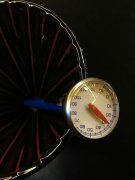Introduction to the types of fancy coffee
Many varieties of coffee served by coffee shops have a variety of flavors, such as chocolate, wine, mint, cloves, lemon juice, cream, cream, etc., and people of different nationalities have different tastes of coffee. Here are some common types of coffee:
Black coffee (black coffee): also known as "black coffee", commonly known as "fast coffee" in Hong Kong-coffee made directly from coffee beans, without adding milk, sugar, etc., will affect the way the coffee is consumed. Instant coffee does not belong to black coffee.
White coffee (white coffee): Malaysian specialty, originated in the town of Ipoh, refers to coffee beans baked in butter, brewed and added to sweet condensed milk. It's essentially a latte. In the United States, white coffee also refers to lightly roasted coffee beans, which are brewed in Italian style and have a strong sour taste.
Flavored-coffee: according to different tastes, add chocolate, syrup, juice, cinnamon, nutmeg, orange blossom and other different seasonings to the coffee.
Espresso (Espresso): coffee is brewed at the end of the coffee by grinding it under high pressure with hot water.
Cappuccino: steam-pressurized espresso with frothy (or steamed) milk, sometimes with cinnamon or spices or chocolate powder as needed. Usually coffee, milk and milk foam account for 1 / 3 of each. You can also add two espresso as needed, which is called "Double".
Caff è latte: "Caff è latte" is an Italian transliteration; latte is also known as "Cafe au lait", French transliteration of ─ coffee with lots of hot milk and sugar. Also known as "coffee milk"-Chinese interpretation, by one espresso plus more than two servings of hot milk. You can also add two espresso as needed, which is called "Double".
Macchiato: put the right amount of steam on the espresso to beat the foam. Macchiato in Italian means "coffee soiled with milk".
Caff è Mocha: add chocolate, milk and whipped cream to the coffee, sometimes with ice.
American coffee (American Coffee / Americano): espresso with lots of hot water. Softer than regular espresso.
Irish coffee (Irish Coffee): add whiskey to the coffee and put cream on top.
Viennese Coffee (Viennese): invented by Austrian coachman Ein Shubner, coffee is made with whipped cream and sprinkled with sugar.
Vietnamese coffee (Vietnamese Coffee): put the minced coffee in a special metal processing filter, pour it into boiling water and let the coffee drop into the cup; when the coffee is finished, add sugar or condensed milk to everyone's taste and stir it to drink. In Vietnam, there are two kinds of drinks: cold drink and hot drink. Hot coffee is mainly drunk in winter, and when brewing, the cup is placed in another small bowl with hot water to keep warm, while cold coffee is mostly drunk in hot summer, which is made by adding ice to the brewed coffee. Due to the poor technology and unstable quality of coffee grown in Vietnam, it is not easy to bite the throat simply by drinking bitterness, and Vietnamese civilians usually have a low income, so condensed milk is added to neutralize the poor flavor of beans.
Mandeling coffee Coffee: produced in Sumatra, Indonesia, Asia, also known as Sumen. Dala coffee. The flavor is very rich, fragrant, bitter, mellow, with a little sweetness.
Iced coffee (Frapp é coffee): coffee with milk foam, sugar and ice cubes, taste slightly sweet and cool, almost no coffee bitter taste, is suitable for summer summer drink.

Important Notice :
前街咖啡 FrontStreet Coffee has moved to new addredd:
FrontStreet Coffee Address: 315,Donghua East Road,GuangZhou
Tel:020 38364473
- Prev

Fine coffee common sense hand brewed coffee points
The temperature of brewing coffee is 83℃ at the moment of brewing, 80℃ when poured into the cup, and 61℃-62℃ when it reaches the mouth, which is the most ideal. It is said that coffee is like life, carefully prepared to have the desired taste and aroma, carefully to taste, in order to truly experience the taste. If you don't know how to mix it, then this cup of coffee will always be bitter.
- Next

Boutique coffee the main ingredients in coffee beans
Caffeine: it has a particularly strong bitter taste and stimulates the central nervous system, heart and respiratory system. Appropriate amount of caffeine can also reduce muscle fatigue and promote digestive juice secretion. Because it promotes kidney function, it is diuretic and helps the body to expel excess sodium ions from the body. But eating too much can lead to caffeine poisoning. Tannic acid: boiled tannic acid will be decomposed into pyrouric acid
Related
- Beginners will see the "Coffee pull flower" guide!
- What is the difference between ice blog purified milk and ordinary milk coffee?
- Why is the Philippines the largest producer of crops in Liberia?
- For coffee extraction, should the fine powder be retained?
- How does extracted espresso fill pressed powder? How much strength does it take to press the powder?
- How to make jasmine cold extract coffee? Is the jasmine + latte good?
- Will this little toy really make the coffee taste better? How does Lily Drip affect coffee extraction?
- Will the action of slapping the filter cup also affect coffee extraction?
- What's the difference between powder-to-water ratio and powder-to-liquid ratio?
- What is the Ethiopian local species? What does it have to do with Heirloom native species?

